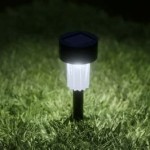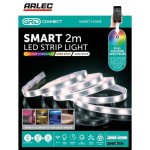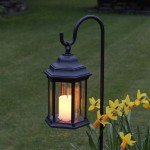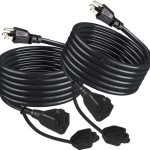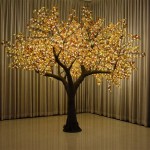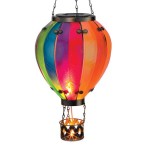How to Perfectly Place Outdoor Landscape Lighting
Properly placed outdoor landscape lighting can enhance the beauty and safety of your home's surroundings. Whether you're looking to illuminate a pathway, highlight a focal point, or create a cozy ambiance, there are key considerations to ensure optimal placement of your lights.
1. Determine Your Lighting Goals
Before placing any lights, determine what you intend to achieve with your landscape lighting. Consider the following goals:
- Pathways: Illuminate walkways for safety and ease of navigation.
- Security: Deter intruders by lighting up dark areas around entry points.
- Aesthetics: Highlight architectural features, trees, or sculptures to enhance visual appeal.
- Ambiance: Create a warm and inviting atmosphere for outdoor gatherings.
2. Choose the Right Light Fixtures
Select light fixtures that complement the style of your home and landscape. Consider the light source (incandescent, LED, solar), wattage, and beam angle. For pathways, use low-wattage lights with a narrow beam angle for focused illumination. For highlighting features, choose high-wattage lights with a wide beam angle for maximum coverage.
3. Plan the Layout
Sketch out a plan for your lighting layout. Start by identifying the areas you want to illuminate. To avoid glare, place lights at ground level or below eye level. For pathway lighting, install lights at regular intervals along the path's edge. For highlighting features, place lights behind or below the feature to create a silhouette effect.
4. Consider Lighting Layers
Create a layered lighting scheme using different types of lights. For example, use low-level path lights for navigation, spotlights for highlighting features, and floodlights for general illumination. Layering provides depth and interest to your landscape.
5. Avoid Light Pollution
Be mindful of light pollution by directing lights downwards and using fixtures with baffles or shields. Excessive lighting can disrupt wildlife and neighbors. Consider using motionセンサーs to activate lights only when needed.
6. Set the Mood
Use different light temperatures and colors to create specific moods. Warm, white lights create a cozy and inviting atmosphere, while cool, blue lights are more invigorating. Experiment with different color filters to achieve the desired effect.
7. Integrate into the Landscape
Hide light fixtures within the landscape whenever possible. Bury cables underground and use plants or hardscaping to conceal the base of lights. This creates a more natural and aesthetically pleasing look.
8. Adjust and Maintain
Once installed, regularly adjust light fixtures to ensure optimal illumination. Trim back plants that may obstruct lights and clean fixtures to prevent dirt buildup. Periodically check for any loose connections or damaged wiring.
By following these guidelines, you can effectively place outdoor landscape lighting to enhance the beauty, safety, and ambiance of your home's surroundings. Remember to prioritize your lighting goals, choose the right fixtures, plan the layout, and avoid light pollution for a stunning and functional outdoor space.
How To Use Landscape Lighting Techniques

Landscape Lighting 101 Bob Vila

Twin Cities Landscape Lighting

How Landscape Lighting Can Enhance The Mood Of An Outdoor Living Space In Croton Ny Masonry Patio Lawn Care Westchester County New York Irrigation Yorktown

A Landscape Lighting Guide For Beginners Metrogreenscape

Outdoor Landscape Lighting Design Tips Ideas Environmental Designs

Landscape Lighting Techniques And Types

Light Backyard Outdoor Lighting Installation Ashburn Va

How Outdoor Landscape Lighting Can Enhance Your Home This Spring Cincinnati Landscaping

How To Install Low Voltage Outdoor Landscape Lighting 1000bulbs Blog
